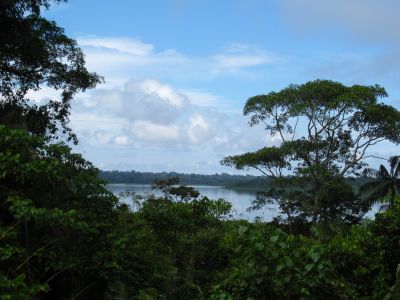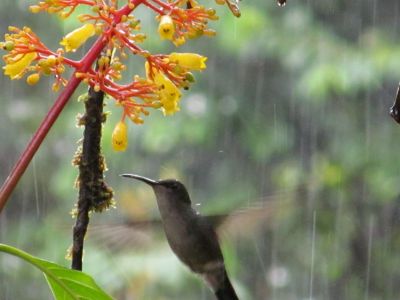
Ecuador is rich in biological, economic and cultural diversity. Its rain forest is home to countless species of native flora and fauna. The nation exports petroleum, bananas, cut flowers, shrimp, cacao, coffee, lumber and fish. And more than a dozen distinct indigenous groups still reside in the mountains and jungles, seeking the benefits of economic development while attempting to maintain the traditions and customs that have sustained their communities for thousands of years.

The forest that begins in the Andes Mountains and extends eastward toward the Amazon Basin offers a living laboratory for applying the insights and tools of ecological economics. This course is holistic in nature, featuring a triple-bottom line perspective – planet, people and profit – and going one step further, exploring the intersection of Christian faith and indigenous spirituality.
Here is what we are hoping to accomplish over the next three weeks:
- Discover the startling variety of plant and animal life that exists in one of the most biologically-diverse nations on earth
- Study current economic development strategies, in particular oil exports and ecotourism, examining the benefits and costs of each
- Encounter native peoples and assess their efforts to protect their distinct cultures and customs in an era of globalization and rapid change
- Learn how the work of Christian missionaries has affected native cultures and inspired leaders of the indigenous church to choose a third way for their communities that is neither entirely traditional nor entirely modern
- Reflect on how we, as global citizens and members of the world’s largest economy, are connected to this unique place and its people through our everyday behaviors, broadening awareness and newly-forged relationships to those living on the equator
We invite you to follow along!




